The Schrödinger Medal is an annual award presented by the World Association of Theoretical and Computational Chemists for "one outstanding theoretical and computational chemist".[1]
Recipients
| # | Year | Name | Citation | |
|---|---|---|---|---|
| 1 | 1990 | 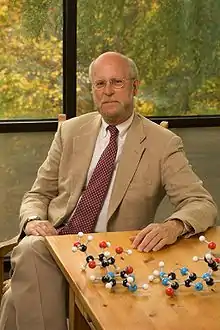 |
Henry F. Schaefer, III | |
| 2 | 1991 |  |
Keiji Morokuma | "For his pioneering contributions to the development and application of theoretical and computational chemistry." |
| 3 | 1992 | 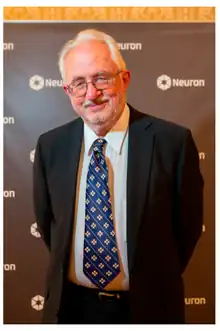 |
Josef Michl | "For his novel contributions to the application of theoretical and computational chemistry, including organic photochemistry." |
| 4 | 1993 | Jan Almlöf | "For his insightful contributions to the development of efficient methods for quantum chemistry calculations, including direct methods." | |
| 5 | 1994 |  |
Leo Radom | "For his pioneering contributions to the application of computational chemistry." |
| 6 | 1995 | Werner Kutzelnigg | "For the development of theoretical methods in the fields of electron correlation, NMR computation, and relativistic quantum chemistry." | |
| 7 | 1996 | Norman L. Allinger | "For his pioneering contributions to the development and application of molecular mechanics." | |
| 8 | 1997 | Nicholas C. Handy | "As the leader of the contemporary renaissance in British theoretical chemistry vis his outstanding contributions to the methods of quantum chemistry and density functional theory" | |
| 9 | 1998 |  |
Kendall N. Houk | "For achievements in the development of theoretical concepts and applications of computational methods to the understanding of the origins of organic reactivity and stereoselectivity" |
| 10 | 1999 | Björn O. Roos | "For the development of important new theoretical methods, including the CASPT2 method, and for outstanding chemical applications to the excited electronic states of molecular systems" | |
| 11 | 2000 | Axel Becke | "For the development of generalised gradient methods in density functional theory" | |
| 12 | 2001 | Ernest R. Davidson | "For a wealth of pioneering contributions to molecular and quantum mechanics" | |
| 13 | 2002 |  |
Walter Thiel | "For the development of semi-empirical methods and the application to large chemical systems" |
| 14 | 2003 | Peter Pulay | "For his development of analytic gradient methods and methods for the evaluation of NMR parameters" | |
| 15 | 2004 | Tom Ziegler | "For outstanding applications of density functional theory, especially to organometallic chemistry" | |
| 16 | 2005 | -Portr_17881.jpg.webp) |
Michele Parrinello | "For the unification of molecular dynamics with density functional theory" |
| 17 | 2006 | 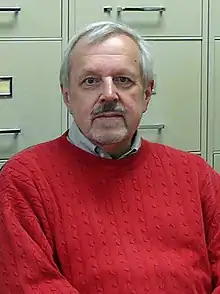 |
Donald Truhlar | "For his outstanding contributions to the theory and computation of chemical reaction dynamics in ground and excited states" |
| 18 | 2007 | Sason Shaik | "For his outstanding contributions to the understanding of the chemical bond, reaction mechanisms in organic chemistry, and enzymatic reactivity" | |
| 19 | 2008 | Rodney J. Bartlett | "For his outstanding work on the systematic development of correlated wave function methods, especially many-body perturbation theory and coupled cluster theory" | |
| 20 | 2009 | Gernot Frenking | "For his outstanding work on computational organometallic chemistry and his fundamental contributions to the understanding of the chemical bond" | |
| 21 | 2010 | Evert Jan Baerends | "For his pioneering contributions to the development of computational density functional methods and his fundamental contributions to density functional theory and density matrix theory" | |
| 22 | 2011 |  |
Peter Gill | "For his outstanding contributions to intracules, Coulomb operator resolutions, perturbative techniques, and two-electron systems" |
| 23 | 2012 | 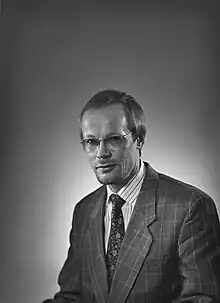 |
Pekka Pyykkö | "For his pioneering contributions to relativistic quantum chemistry" |
| 24 | 2013 | Stefan Grimme | "For his outstanding work on ab initio and density functional methods for large molecules" | |
| 25 | 2014 | Mark Gordon | "For his contributions to the development and implementation of ab initio electronic structure methods and their application to complex systems" | |
| 26 | 2015 | Helmut Schwarz | "For the successful combination of seminal experimental and computational research on mass spectrometry and catalysis" | |
| 23 | 2016 | Hiroshi Nakatsuji | "For the discovery and development of general methods of solving the Schrödinger equation of atoms and molecules" | |
| 24 | 2017 | Pavel Hobza[2] | "For his outstanding work on noncovalent interactions" | |
| 25 | 2018 | Klaus Ruedenberg | "For advancing ab initio quantum chemistry through seminal innovations, pioneering the deduction of bonding concepts from rigorous wave mechanical analyses and, notably, identifying the fundamental physical origin of covalent bonding" | |
| 26 | 2019 |  |
Joachim Sauer | "For his outstanding contributions to the quantum chemistry of solid materials and their successful application to heterogeneous catalysis" |
| 27 | 2020 | Martin Head-Gordon | "For his contributions to density functional theory, wave function methods, and energy decomposition analysis." | |
| 28 | 2021 | 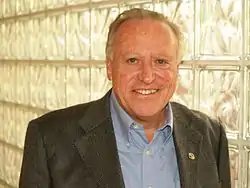 |
Yitzhak Apeloig[3] | "For his pioneering combined computational-experimental seminal contributions to silicon chemistry and mechanisms in organic chemistry" |
| 29 | 2022 | Frank Neese[4] | "For his pioneering development of new quantum chemical methods for theoretical spectroscopy and local electron correlation, and their applications to real-life chemical problems" | |
See also
References
- ↑ "WATOC – Schroedinger". World Association of Theoretical and Computational Chemists. 2015. Retrieved 23 March 2015.
- ↑ "Prof. Pavel Hobza receives Schrödinger medal for 2017". IOCB Prague. 1 September 2017. Retrieved 12 June 2022.
- ↑ "The Schrödinger Medal Will be Awarded to Technion Distinguished Professor Yitzhak Apeloig". American Technion Society. 11 January 2021. Retrieved 12 June 2022.
- ↑ "Great honor for theoretical chemists: Kohlenforscher Frank Neese receives the Schrödinger medal of the WATOC". Max-Planck-Institut für Kohlenforschung. 10 February 2022. Retrieved 12 June 2022.
External links
This article is issued from Wikipedia. The text is licensed under Creative Commons - Attribution - Sharealike. Additional terms may apply for the media files.